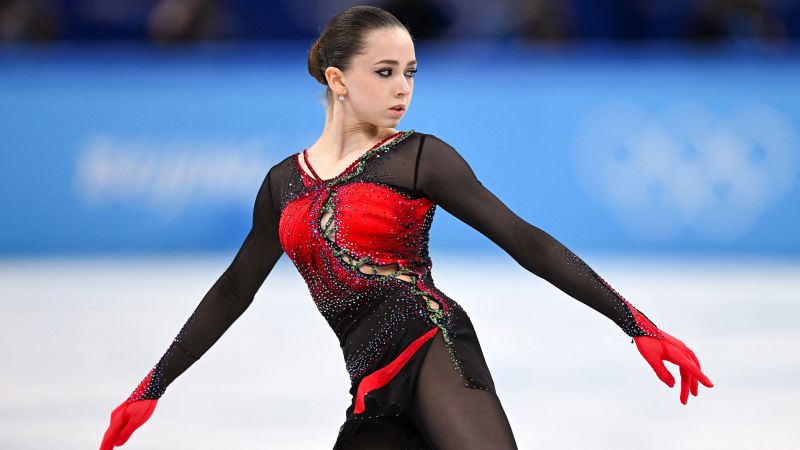CNN
—
The US Figure Skating team will receive a gold medal for its 2022 Beijing Winter Olympic performance, after Russian figure skater Kamila Valieva was handed a four-year ban over a long-running doping controversy, but Canada has been left “extremely disappointed” after not being awarded the bronze.
Valieva, now 17, had led the Russian Olympic Committee (ROC) to first place in the team event ahead of the US and Japan — before her doping test came back positive for performance-enhancing substance trimetazidine.
The ban is backdated to December 25, 2021, which is when the sample was collected. Valieva was only 15 at the time.
No medals had been awarded as a result of the doping controversy until the Court of Arbitration for Sport’s decision to disqualify Valieva of “all competitive results” achieved since her positive test.
In a statement posted on its website on Tuesday, the International Skating Union (ISU) confirmed that Valieva’s results were disqualified in both the singles – where the teenager finished fourth – and team event.
The disqualification of her results was accompanied by a re-ranking of medal positions in the team event where the ROC fell to third, with the US and Japan moving up to first and second respectively. Canada remained in fourth place, one point behind the ROC’s recalculated results.
In a statement Tuesday, Skate Canada said it “strongly disagrees” with the ISU’s decision to leave its team in fourth place and said it “will consider all options to appeal this decision.”
The statement added that the ISU was not applying Rule 353 in its latest decision, which states that “competitors having finished the competition and who initially placed lower than the disqualified competitor will move up accordingly in their placement.”
CNN has reached out to the ISU for clarification on the method it used to re-rank the teams.
Valieva’s disqualification from her first-place finish in the women’s singles competition of the 2022 European Figure Skating Championship also vacated her gold medal to compatriot Anna Shcherbakova.
In a statement Monday night, the US Olympic and Paralympic Committee (USOPC) said its CEO Sarah Hirschland “confirms she spoke with the IOC this evening and received the awesome news that the 2022 US Figure Skating team event athletes have been awarded the gold medal in the team competition.”
“Let the celebrations begin,” it said in the statement. “Congratulations Evan Bates, Karen Chen, Nathan Chen, Madison Chock, Zachary Donohue, Brandon Frazier, Madison Hubbell, Alexa Knierim and Vincent Zhou.”
The highly-anticipated decision has been welcomed by anti-doping bodies around the world – including the International Olympic Committee (IOC), which said it would award the medals according to the ISU rankings.
No date or location has been provided for the medal ceremony, though the IOC confirmed it would organize “a diginified Olympic medal ceremony” for the US, Japan, and then-fourth-placed Canada in future.
CNN Sport has contacted the International Olympic Committee (IOC), the Japanese Olympic Committee and the ROC for further comment.
Russian athletes were competing under no flag as neutrals at the Winter Olympics in Beijing due to a previous ban for doping non-compliance.
Even with the latest news of Valieva’s ban, Alexander Kogan, director general of the Russian Figure Skating Federation, said that he still views his athletes to be the champions in the team event.
And on Tuesday, Kremlin spokesman Dmitry Peskov expressed disagreement with the decision to disqualify Valieva.
“Upon returning from China – from the Olympics – we honored these athletes as Olympic champions,” he told reporters on a conference call.
“We are convinced that, for us, they will always remain Olympic champions. No matter what decisions are made in this regard, even unfair ones.”
Peskov added that there cannot be any revisions and down cuts in payments from the state to Russian medalists from the Beijing Olympics.
In its Monday announcement, CAS said that the decision to ban Valieva for four years is “final and binding,” explaining that the parties can appeal to the Swiss Federal Tribunal “within 30 days on limited grounds.”
CNN’s Jill Martin and Anna Chernova contributed to reporting.






